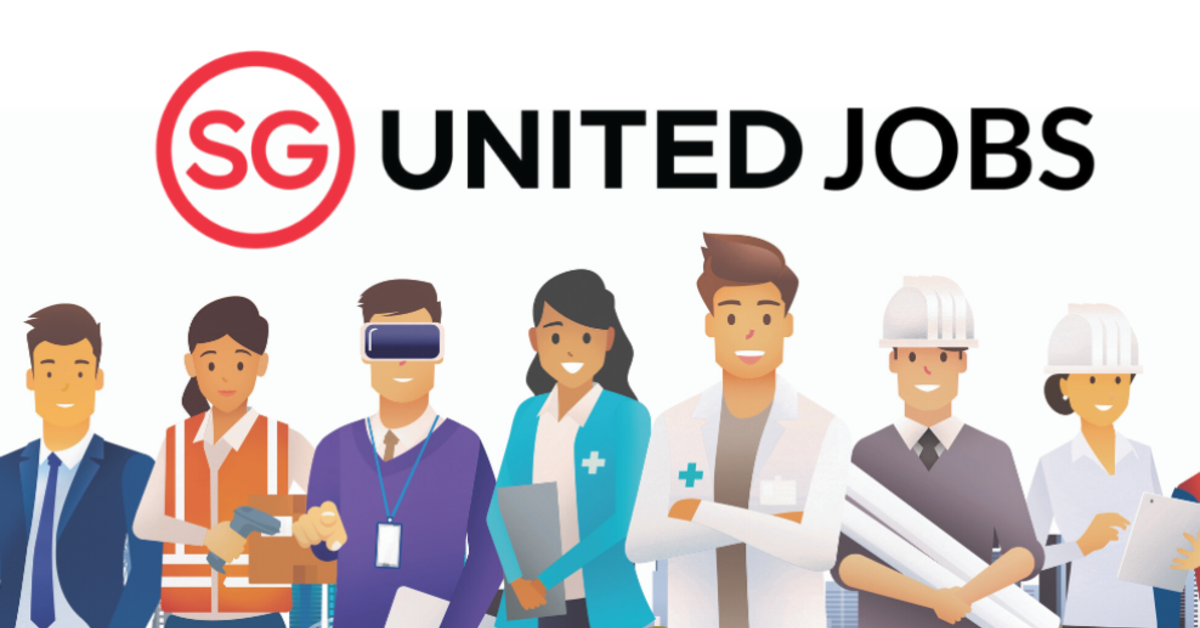Are any of us really ready to start going back to work after COVID-19? With research indicating that 82 per cent of workers in Singapore are seemingly keen about incorporating work from home after COVID-19, it seems less than likely that the nation is going to be able to pick up where it left off just like that.
But it’s also the luckier of us that are even able to feel that concern, with many Singaporeans still battling unemployment. The reality of securing jobs once the positions created during COVID-19 have lapsed is also one that’s plaguing many of us by the day.
Forty per cent of Singaporean employees voiced their top concerns during this period regarding cost-cutting measures that have impacted their compensation. The last employee of more than 13,000 mid-career positions created by the government will end work in December 2021. That’s more than 13,000 employees that companies need to be able to afford to pay.
The best way to guarantee your stability during these times is to upskill and keep yourself as relevant as you can to the modern workforce, no matter your age. Let’s run through some of the concerns that Singaporeans have.
For starters, consider the viability of your skills in your industry
With age and other factors catching up on you, you may stand a lower chance of survival in a competitive post-COVID-19 job market. But whether you’re actually going to hop industries or not, you gain no harm by just thinking about it.

Which industries could your skills be relevant to? And are you able to match these skills with your personality? To weigh your considerations, you could speak to others in similar industries to understand their jobs and, of equal importance, their working environment.
You could also consider applying for the SGUnited Mid-Career Pathways Programme (SGUP), which is a programme that offers full-time training by companies such as Google, Shopee, and IBM, while you receive allowances for self-sustenance.
You can also survey the Professional Conversion Programme (PCP), which is a structured programme that includes classroom and workplace training so that you can embark on a new job as soon as possible. At the moment, there are about 100 PCPs available in the professional market.
But will SGUP or PCP guarantee me a full-time job, though?
There’s no guarantee. But there’s no guarantee when applying for any job to begin with. The SGUP and PCP programmes help to increase your chances of getting a full-time position, at the decision of the company that you’re attached to. The formulation of the SGUP and PCP grants were also to nudge companies towards hiring employees again, increasing their productivity and revenue.
There are also programmes in the mix-up that allow you to work while training through employers who are participating in the programme. In the same way, employers can also offer you a full-time position once you’ve completed it.
If you face constant rejection, consider making an appointment at the Careers Connect WSG Centre, or get on the phone with a Career Ambassador by calling 6883 5885. The assistance you’ll receive includes resume consultation, career matching, and advice on your sector, amongst other things.
I’m worried about being unsuitable because of my age.

There have been examples of people in their 60s making sector industry transitions through means of programmes with Workforce Singapore. The PCP programme is open to all Singaporeans, regardless of their age. However, there are eligibility requirements for placements, such as role suitability.
Employers have also been encouraged to have progressive hiring practices, and are providing employment to those in their 40s, 50s, or older. You can look out for these positions on the MySkillsFuture platform. Positions aren’t always available, but they do surface at a relative frequency. So make sure to keep checking every once in a while!
The job market’s going to change after COVID-19.
The digital disruption has changed so much of how the world and our jobs work during COVID-19. This has created new roles and new ways of doing our jobs and warmed companies up to new technologies that you might not be all that familiar with.
Make sure you’re up to date on how to operate modern-day collaborative working tools like Zoom, Google Meet, Microsoft Teams, and more. Make sure you can look and present yourself sharply in front of a camera.
While it might seem like these pandemic times are only improving, it’s important that we all remain flexible and open during our job searches. You might also need to examine your financial commitment, assessing if you have the luxury of waiting for an ideal opportunity. This might even take some discussion with your partner or family. This might even mean throwing yourself into unfamiliar territory and exposing yourself to a sector that you’ve never been in.
Most of all, keep a strong set of skills, but an even stronger mind.
Join the conversations on THG’s Facebook and Instagram, and get the latest updates via Telegram.




























